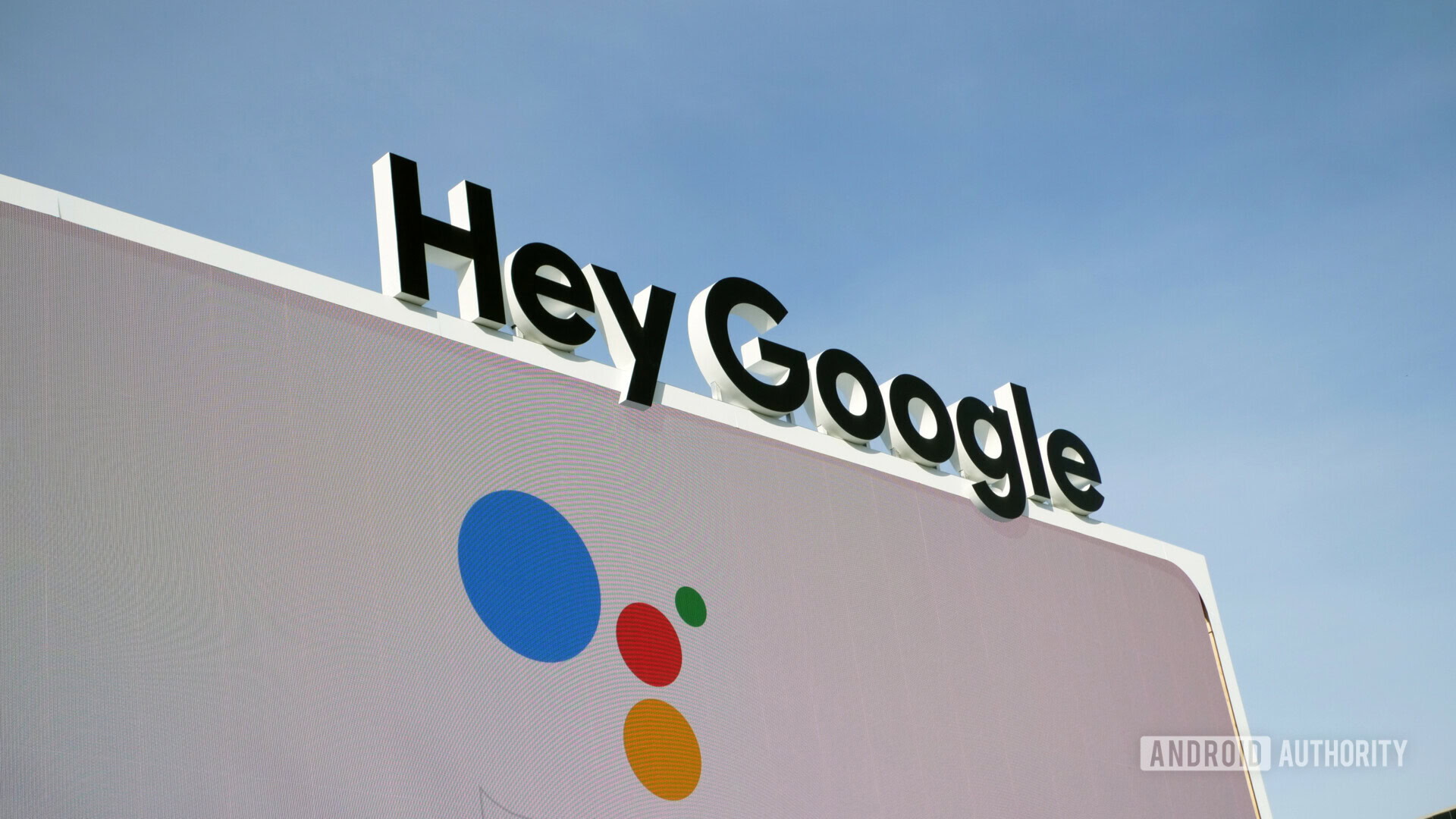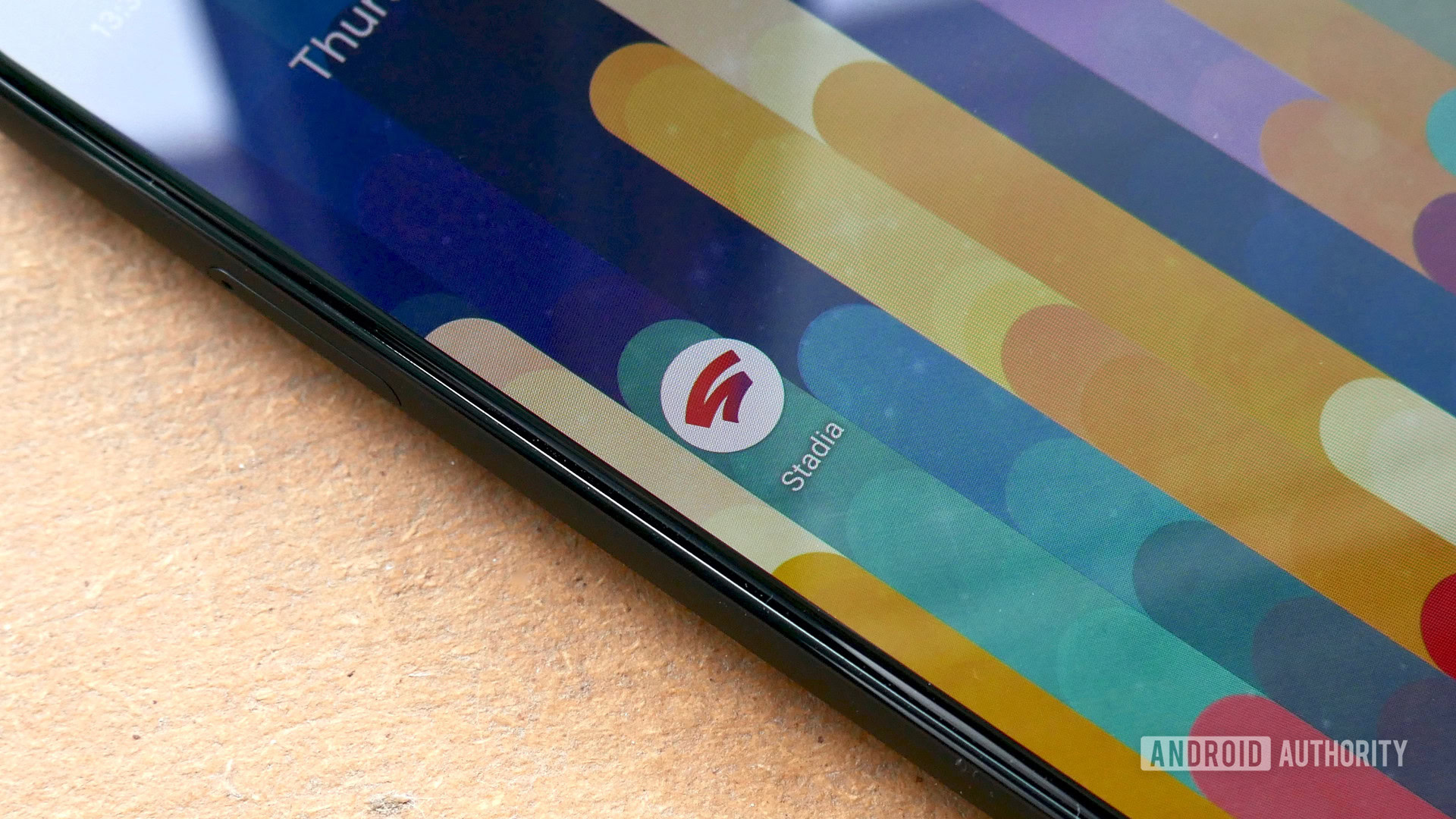Affiliate links on Android Authority may earn us a commission. Learn more.
Google’s reputation is becoming its biggest problem

Google Plus is lost forever, but if it were still around, I could dig up a post I put up on May 15, 2013 that read something along the lines of “I love Google!”
It was early in my tech blogging career, and I was definitely a bit less jaded than I am today. I had just watched the opening keynote of Google I/O 2013, and, boy, it was exciting.
The announcements from the keynote were pretty cool (remember the Galaxy S4 Google Edition?), but the real reason I felt the need to tell the world about my love for Google was Larry Page’s surprise Q&A session at the end. In his soft shaky voice, the Google founder fielded questions from the audience and talked about his vision for the future of technology.
“We as Google, and as industry all of you [developers], are really only at one percent of what is possible. And probably even less than that. And despite the faster change we have in the industry, we are still moving slow, relative to the opportunities we have,” Page said at one point. By then, I was already sold. I had drunk the Kool-Aid.
So why bring this up now? It’s not because I no longer like Google. I still think it’s a fascinating company and a force of good overall. But events from this week reminded me I am no longer the Google fan I once was. More importantly, seeing the reaction to these events, it struck me how Google’s reputation with the public is now fraught with suspicion and animosity.
This has a lot to do with what Larry Page said back in 2013. Perhaps Google still feels it’s moving too slowly relative to the opportunities it has. That may be true. The problem is the world thinks Google is moving too fast already.
Perception: Google collects too much data
On Tuesday, WSJ put out a report on Project Nightingale, a deal between Google and Ascension, one of the largest healthcare providers in the US, that purportedly gave Google access to medical records of 50 million Americans.
Hours after the story went out, Google “proudly announced” what Project Nightingale actually is (spoiler: it’s more mundane than you’d think), but the harm was already done.
Across media, Project Nightingale was painted as another ominous data grab from the poster boy of data grabs, only that this time it’s deeply-personal medical records.
It didn’t matter that Google talks openly about its work in healthcare, ranging from basic G Suite deployments for hospitals to AI-assisted research on diseases such as diabetes and Parkinson’s. Or that Google itself had previously announced the Ascension deal in its July earnings call. Or that access to medical data is heavily regulated, and data sharing is commonplace in healthcare.
The only people who should have my medical data are doctors are doctors and hospitals. Are they going to target poorly people with adverts? It’s not right.— SaraW (@Sarawow69Smith) November 13, 2019
The story spawned hundreds of scary-sounding headlines, and probably tens of thousands of negative reader comments, not to mention a federal probe and scrutiny from multiple lawmakers.
Don’t get me wrong: the scrutiny is not the problem. Google should absolutely be transparent about the data it collects. The problem, for Google, is that people see it as a shady data seller, a purveyor of spyware. Part of this reputation is warranted, part of it is not.

Perception: Google is everywhere
Another Google project that made the news this week is Cache, a plan for Google to start offering checking accounts in partnership with banks and credit unions. This is not as nefarious-sounding as hoovering up medical data, though for many people, financial records are just as private and important as medical ones.
Google wouldn’t be the first tech company to move into finance – Apple, for instance, has Apple Pay and Apple Card, while Facebook has a brand new in-app payment system, as well as the Libra cryptocurrency. But, for the general public, this latest move does raise the question: Why? Why does Google need to do banking now?
WHY DOES EVERY COMPANY NEED TO DO EVERY SINGLE THING?It’s okay to NOT ENTER A BUSINESS.— Dieter Bohn (@backlon) November 13, 2019
For its part, Google says it wants to reach a young audience that increasingly does everything online, and that it can use its scale to create value in a segment that lacks innovation. The company also gives assurance that it won’t share the financial data it gathers with advertising partners.
But that doesn’t answer the question from a consumer perspective. Why does Google want to run my bank account?
Google is already involved in so many aspects of our lives. With every new industry it enters, the company is increasingly seen as omnipresent and omniscient. Some consumers have nothing against this, especially if they get amazing products and services in exchange. But others are put off by this endless feature creep, and the pushback will only get stronger.
Perception: Google is fickle and unreliable
The number of jokes about dead Google projects is almost as high as the number of gravestones in the Google Cemetery.
This can be seen as a positive trait – by constantly trying new things, and killing projects that don’t show promise, Google ensures it’s always evolving. That’s no easy feat for a company worth close to a trillion dollars that employs 100,000 people. Google’s love for new projects gave us products like Gmail, Chrome, and Android, that have little to do with Google’s original business model of selling ads on search results.
On the other hand, the uncertainty makes it harder to buy into new Google products, whether you’re a consumer or a developer in the Google ecosystem. Especially seeing how Google often treats its early adopters as beta testers.
Google’s new Stadia game streaming service beautifully illustrates why its reputation is suffering.
Stadia started off with lots of hype and big promises, backed by Google’s cloud computing expertise and its well-deserved reputation of technical brilliance. However, ahead of its launch next week, it looks like Google oversold Stadia, which will lack many of the promised features on day one.

As my colleague C Scott Brown put it, “you don’t necessarily need any of those features to enjoy playing Google Stadia, and they all will come down the pipeline eventually, but it’s clear that the service is simply not fully ready for release at the moment. Google’s pushing it out anyway and I don’t feel the need to be one of the first people to test out a half-baked product.”
Google is essentially charging people to be beta-testers here. Sure, some enthusiasts will happily take up the offer, but it’s not exactly a fair deal for the average customer.
For game developers, the stakes are much higher. Google is asking them to bet their livelihoods on Stadia, and its reputation for killing project has many worried.
“The biggest complaint most developers have with Stadia is the fear is Google is just going to cancel it,” Gwen Frey, who develops the Stadia launch game Kine recently said.
Google is essentially charging people to be beta-testers here.
To be fair, lots of developers are willing to take that chance, and Frey herself is one of them. “The biggest concern with Stadia is that it might not exist. And if you think about it like that, that’s kind of silly. Working in tech, you have to be willing to make bold moves and try things that could fail,” she said.
Not all developers can afford to bet their business on a platform that could be shut down without fuss in a year or two. Just like not all consumers can spend a couple hundred bucks to buy into a service that may or not work as promised six months from now.
It’s not just paid services – Google’s spotty record makes it harder to adopt even its free apps and services. Take social: Google has launched dozens of messaging and social apps over the years, and few of them are still around. Not all of them failed due to a lack of commitment – Google Plus benefited got a serious push for a while. But many were half-baked and scattershot. Understandably, anyone who gave Hangouts, or Google Plus, or Allo a chance, will think twice before doing it again in the future.

Don’t be evil, but also don’t look evil
“Don’t Be Evil,” Google’s famous unofficial motto, has been part of its Code of Conduct from 2000 to 2018, when Google quietly removed it. It may not be set in stone anymore, but I still believe the people at Google guide themselves based on this motto.
I also believe that Google has made massive contributions to the progress of humanity. To give just one example, the importance of the Android ecosystem, and its ability to bring a billion people online for the first time, cannot be overstated. Of course, most of Google’s contributions are self-serving to an extent, but that doesn’t take away from their significance. And Google’s most important work could be ahead of it. Technologies like machine learning and quantum computing could change everything.
The problem is Google’s reputation threatens to derail all the tremendous work it’s doing. Google is not evil, but for more and more people, Google seems evil.
The way Google is perceived is sometimes unfair. People often cry “Google steals your data!” without even attempting to understand what’s going on.
Google is also shouldering the blame for broader Big Tech problems in general. Like Facebook, it’s often perceived as too data-greedy. Like Amazon, it’s too big and too omnipresent. Like Apple, it’s also increasingly seen as too rich and out of touch.
The challenge for Google right now is to repair this reputation.
But Google can only blame itself for the over-reliance on user data; the eternal betas; the scattershot approach to messaging (and everything else); the internal culture that favors the release of new products; the seemingly rash decisions that are soon reversed; or the heavy-handed take on social.
The challenge for Google right now is to repair this reputation. Perhaps it’s a manageable task at the moment, but the trouble with reputations is they precede you everywhere you go. For the sake of all the positive contributions it’s made, and it can still make, Google needs to think long and hard of how its many projects reflect on it and how it’s viewed by the public.